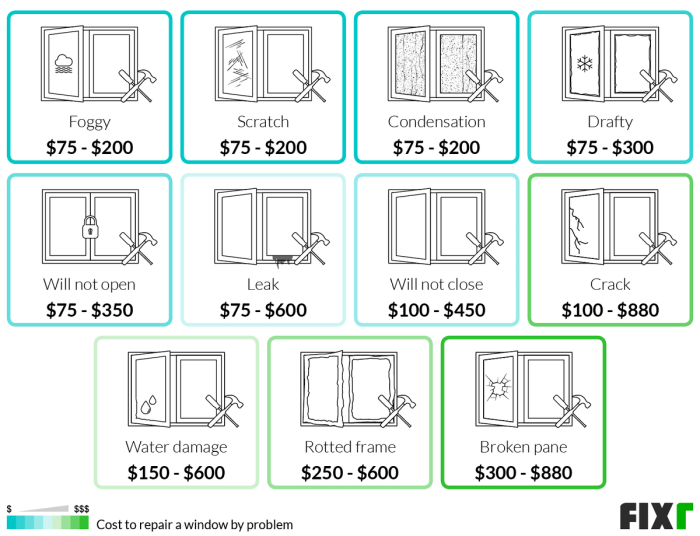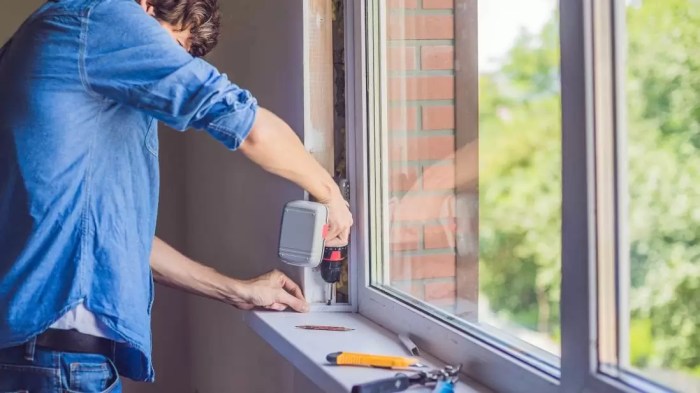Exploring the cost-effectiveness of Window Replacement vs Repair, this introduction sets the stage for a comprehensive discussion that delves into the factors influencing these choices. Providing valuable insights, this piece aims to inform and educate readers on making informed decisions regarding their windows.
Window Replacement vs Repair
When it comes to deciding between window replacement and repair, cost-effectiveness plays a crucial role in making the right choice. Let's delve into the cost differences and factors influencing each option.
Cost Differences
Window replacement generally involves a higher upfront cost compared to window repair. The price of new windows, installation labor, and potential structural modifications can add up quickly. On the other hand, window repair costs are usually lower since it involves fixing specific issues like broken seals or hardware.
Factors Influencing Cost-Effectiveness
- Age of the windows: Older windows may require frequent repairs, making replacement a more cost-effective long-term solution.
- Energy efficiency: Newer windows are more energy-efficient, reducing utility bills over time and increasing cost-effectiveness.
- Extent of damage: Minor damages can often be repaired at a lower cost, but extensive damage may warrant a replacement for better durability.
- Home value: Upgrading to new windows can increase the overall value of your home, making replacement a more financially beneficial choice.
Long-Term Benefits of Window Replacement
Choosing window replacement over repair can offer several long-term benefits, such as improved energy efficiency, enhanced curb appeal, increased resale value of your home, and reduced maintenance costs. While the initial investment may be higher, the long-term savings and benefits make window replacement a more cost-effective choice in the grand scheme of things.
Factors Influencing Costs

When it comes to the cost of window replacement, several factors play a crucial role in determining the final price. From the type of window to the size of the opening, each element contributes to the overall cost. On the other hand, the extent of damage to a window directly impacts the cost of repair.
Understanding these factors can help homeowners make informed decisions about whether to repair or replace their windows.
Type of Window
- The type of window you choose for replacement can significantly affect the cost. For example, standard single-hung windows are generally more affordable than custom-made or specialty windows.
- Energy-efficient windows, although pricier upfront, can lead to long-term cost savings on energy bills.
Size of the Opening
- Larger window openings require more materials and labor, resulting in higher replacement costs.
- Custom-sized windows may also increase the overall cost compared to standard sizes.
Extent of Damage
- Minor damages such as small cracks or gaps can often be repaired at a lower cost than replacing the entire window.
- Extensive damage like broken frames or shattered glass may necessitate a full replacement, leading to higher costs.
Repair vs. Replacement
- Repairing a window can be more cost-effective in situations where the damage is minimal and isolated, saving homeowners from the expense of a full replacement.
- For older windows with historical or architectural significance, repair may be preferred to maintain the original character of the home while keeping costs down.
Energy Efficiency Considerations
Replacing windows can significantly improve the energy efficiency of a home by reducing heat loss in the winter and heat gain in the summer. This can lead to lower energy bills and a more comfortable indoor environment.When comparing the energy-saving benefits of replacing windows versus repairing them, it is important to consider the overall condition of the windows.
While repairs can address specific issues like drafts or leaks, replacing old and inefficient windows with new, energy-efficient models can provide long-term savings and improved comfort.
Energy-Efficient Window Options
- Double or triple-pane windows with low-emissivity (low-E) coatings can reduce heat transfer and improve insulation.
- Argon or krypton gas-filled windows can further enhance thermal performance by reducing heat conduction.
- Energy Star certified windows meet stringent energy efficiency criteria and can help homeowners save on heating and cooling costs.
- Insulated frames, such as fiberglass or vinyl, offer better thermal performance and reduce the risk of condensation and mold growth.
Environmental Impact

When it comes to the environmental impact of choosing between window replacement and repair, there are several factors to consider. Let's explore how these choices can affect the environment and sustainability.
Sustainability of Window Materials
The materials used in window replacement can have a significant impact on the environment. For example, choosing energy-efficient windows made from sustainable materials like wood or fiberglass can help reduce energy consumption and lower greenhouse gas emissions. These materials are also durable and long-lasting, reducing the need for frequent replacements and minimizing waste.On the other hand, windows made from non-renewable materials like vinyl or aluminum can have a higher environmental impact due to the extraction and manufacturing processes involved.
These materials may also have a shorter lifespan, leading to more frequent replacements and increased waste generation.
Reducing Waste through Window Repair
Repairing windows instead of replacing them can contribute to waste reduction and promote sustainability. By fixing minor issues like drafts, leaks, or broken seals, homeowners can extend the lifespan of their windows and prevent them from ending up in landfills prematurely.
Repairing windows also consumes fewer resources compared to manufacturing new ones, further reducing the environmental footprint of window maintenance.
Final Wrap-Up
In conclusion, the debate between Window Replacement vs Repair: What’s More Cost-Effective? offers a nuanced perspective on balancing cost, efficiency, and sustainability. By weighing the options and understanding the long-term implications, individuals can make the best choice for their homes.
Answers to Common Questions
What factors should I consider when deciding between window replacement and repair?
Factors such as extent of damage, long-term benefits, and cost differences play a crucial role in making this decision.
How can window replacement improve energy efficiency in a home?
Upgrading to energy-efficient windows can reduce heat loss, lower energy bills, and create a more comfortable living environment.
What are some energy-efficient window options available in the market?
Options like double or triple-pane windows, low-emissivity coatings, and insulated frames are popular choices for enhancing energy efficiency.













